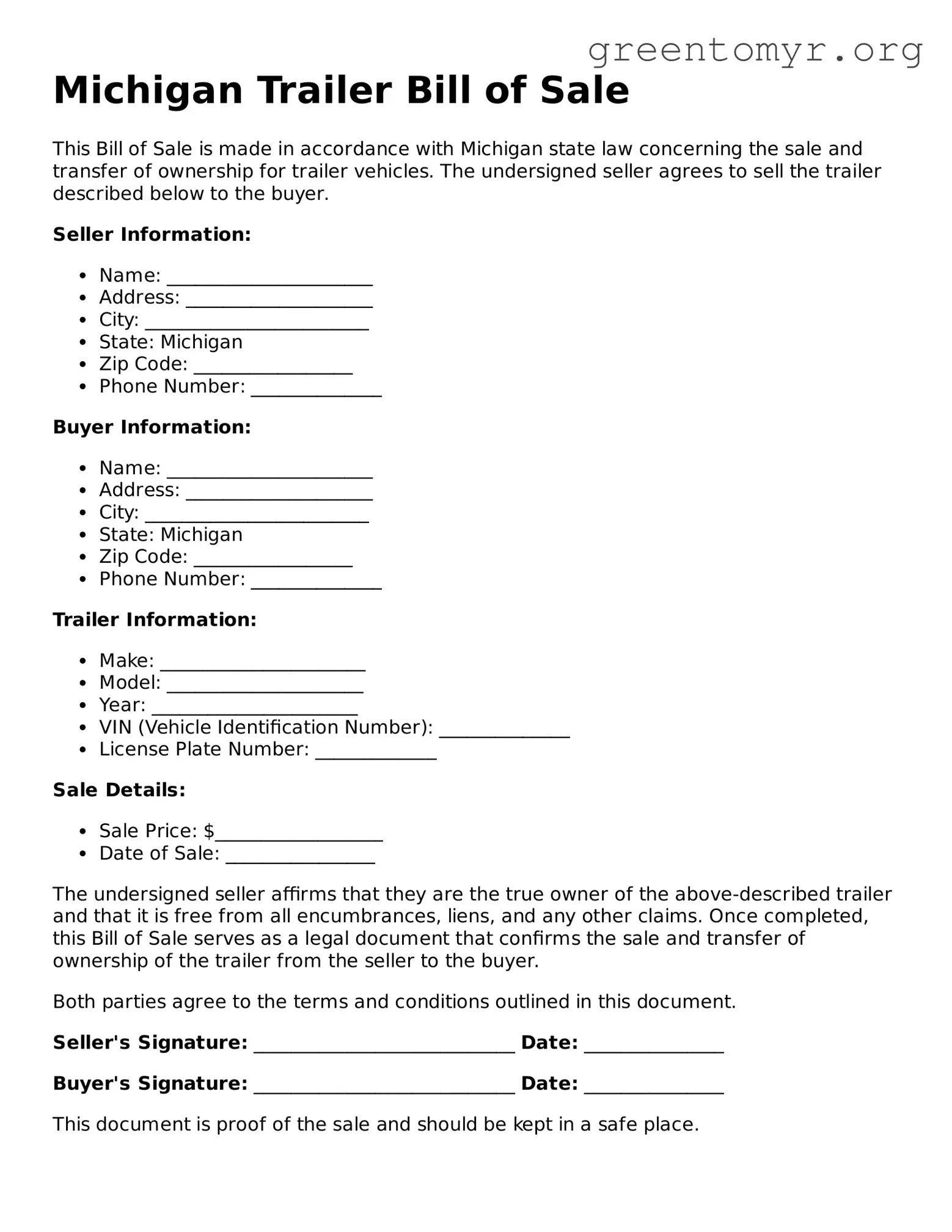Filling out the Michigan Trailer Bill of Sale form can be a straightforward process, but mistakes can easily happen. One common error is missing signatures. Both the seller and the buyer should sign the document to make it valid. Failing to do so can lead to complications when registering the sale later.
Another mistake arises from inaccurate vehicle information. It's crucial to double-check the trailer's make, model, year, and vehicle identification number (VIN). Any discrepancies can result in delays or issues with the transfer of ownership.
Many people overlook the importance of the date of sale. This detail is essential for both parties to establish when the transaction occurred. Without a clear date, there may be confusion regarding warranties or the start of registration requirements.
Also, some individuals forget to include the purchase price. This detail is necessary for tax purposes and is often required by the state. Leaving it blank might create headaches when filing taxes or registering the trailer.
Another frequent oversight involves not providing personal information for both the buyer and seller. Full names, addresses, and contact numbers are crucial to verify the identities of both parties and to ensure that all communication regarding the sale can occur smoothly.
Sometimes, people rush through the process and neglect to keep a copy of the completed bill of sale. Having a copy can be vital for future reference and protects both parties in case disagreements arise later on.
Additionally, many fail to note that different types of trailers may require additional documentation. If the trailer is used for business purposes or has specific modifications, check with local authorities to see if other forms are needed.
Those filling out the form should also be mindful of not reviewing local laws regarding trailer sales. Regulations can vary by county and missing a step can create legal challenges down the line.
Finally, individuals may submit the Bill of Sale without ensuring all blanks are filled. Leaving any sections incomplete can cause issues with the registration process, since every detail is typically required. Take the time to review each section carefully before submission.
